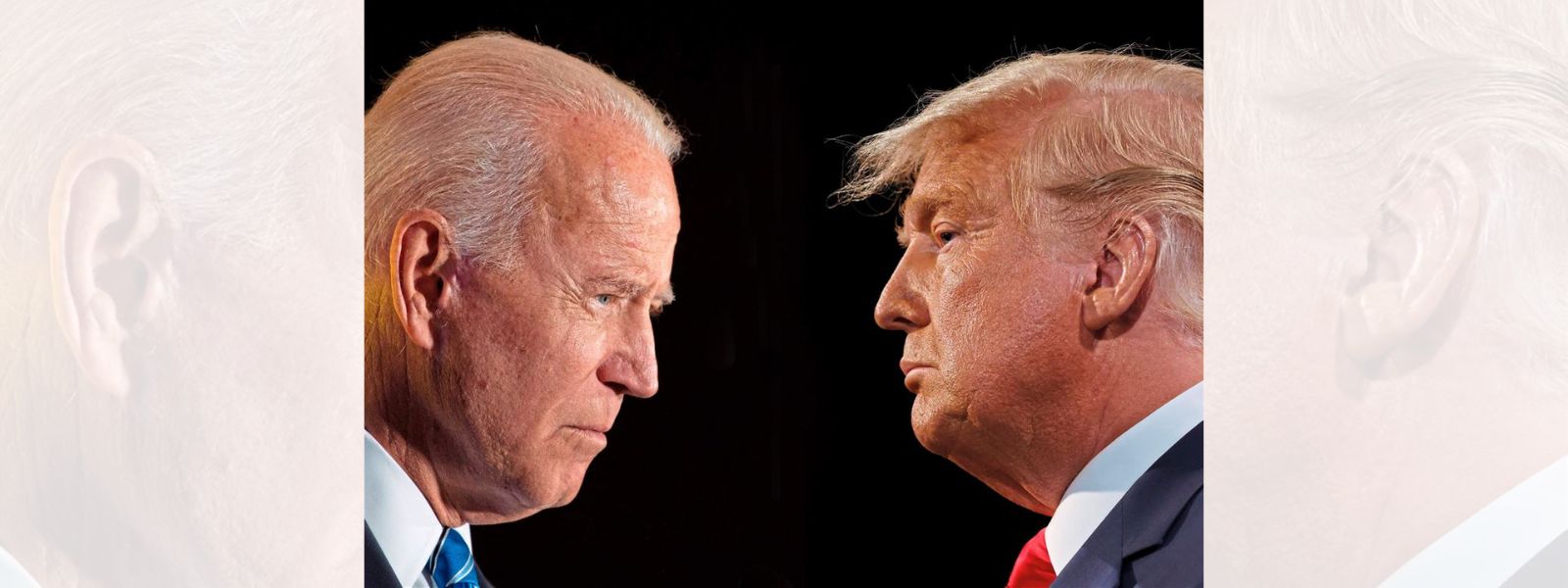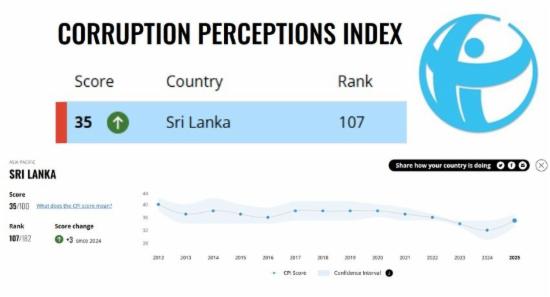.webp)

Should we be worried about older politicians?
With the top contenders for the US presidential election in 2024 both well past the typical retirement age, debate is raging over the trade-offs of being led by older politicians
By Christine Ro
(BBC) - Pauline Newman, now 96, holds a lifetime position as a US federal judge. Though she wants to carry on working, she's in the midst of lawsuits with colleagues who want her to retire.
The US has become a hotspot for debates about whether people in the political sphere can ever be too old to lead. The top contenders for the 2024 US presidential election are Joe Biden, who at 80 is over twice as old as the median American; and 77-year-old Donald Trump, who is more than a decade beyond the "Normal Retirement Age" – the age at which Americans can receive their full retirement benefits.
Apart from discussions of the fact that gerontocracies – societies governed by older people – are typically not representative of their population, there are other concerns.
One key focus is mental fitness. Neuroscience and psychology suggest that cognitive performance varies widely as people grow older, making it tricky to determine whether someone can be too old to lead. And while some skills tend to decline with age, others improve. Some "super agers" even possess the mental acuity of people many decades younger than themselves. So, how old is "too old" to lead – or is this the wrong question?
How aging affects the brain
Brain volume diminishes over time. In healthy people, the prefrontal cortex is the region of the brain with the most age-related volume loss, of roughly 5% per decade. Through its connections to other parts of the brain, it helps manage executive function: a complex set of mental processes that has been likened to a thermostat or the conductor of a symphony. It's key to discussions of leadership capacities because it's involved in areas like problem-solving, goal-setting, and impulse control.
Executive function declines gradually during a person's 30s, and this accelerates as we enter our 70s. White matter disease – a group of conditions caused by damage to the white matter in the brain – also contributes to executive dysfunction, and affects about a third of people aged 65 and older. Executive dysfunction can show up in reduced impulse control and increased repetition of thoughts and behaviors.
A significant proportion of people over 65 have some impairment of executive function, "I think as a general breakpoint, 65 is reasonable," says Mark Fisher, who directs the Center for Neuropolitics at the University of California, Irvine. Other structural changes in the brain become solidified around this age as well – mental processing speed has been shown to decline from around the age of 60 in a study using US data.
The very loose threshold of 65 applies to the US, where the overall life expectancy at birth is 76. However, it may be different in countries with markedly different life expectancies and health systems (and there is also substantial racial and other inequality within the US that affects longevity). For example, the life expectancy for men in the US is 73. This is lower than in the top countries, but much higher than the life expectancy of 60 for men in Cameroon, whose president, 90-year-old Paul Biya, is said to be the world's oldest national leader.
Life expectancy at birth doesn't tell the full story of longevity, as this number is brought down by factors like infant mortality. For example, an 80-year-old in the US could expect to live another decade. This means that in reality, there is no hard and fast rule for when, or even if, a person will be significantly affected by the decline of executive function – particularly when you factor in that we don't all have the same proficiency to begin with.
‘Tremendous variability'
Fisher explains that in general, averages can obscure expectations of healthy longevity and cognitive fitness, given what he calls the "tremendous individual variability" in executive function. "The battery of testing would be the best way to formally determine one's executive function, but there is going to be wide variation in terms of how individuals function," Fisher says.
One differentiator is comorbidities: multiple conditions like heart disease, high cholesterol, and hypertension (high blood pressure). All of these can impact brain function, particularly executive function. And while aging does not always come with illness, it makes it more likely.
According to Fisher, "hypertension is, probably along with aging itself, the most important, most impactful factor on brain aging as a whole and executive function as well". Thus, early diagnosis and treatment of hypertension is an important area of intervention to protect brain health. And positively, this is an area where treatments and knowledge are regularly improving, Fisher says.
There's also variation in which parts of the brain can compensate for others that show some age-related damage. While the brain is generally very plastic, and many of us can partially make up for disruptions in one part of the brain by enlisting other parts of the network, others will experience a failure of compensation along the lines of Alzheimer's disease, explains Mark Mapstone, a translational neuroscientist at University of California, Irvine.
However, it's not all bad news. There are some aspects where older brains actually show better performance. While the ability to take in new information declines much earlier, the ability to direct and act on information can improve well into a person's 70s.
So, while 70-year-olds will probably process new information more slowly than 30-year-olds, they may do better at synthesizing it. Mapstone says that 60-year-olds typically have better vocabulary than 20-year-olds, and can thus substitute words better. For example, one study found that vocabulary scores increase until a person's mid-60s.
"What happens with older brains is they get better at what is called crystallized intelligence," explains Rose McDermott, who specializes in political psychology at Brown University. "You have these kinds of established schemas and ways of thinking about things. And you're able to integrate new information into existing structures much more readily and in many cases creatively than you can when you're younger because you don't sit on the same degree of knowledge base."
The cognitive particularities of political life
Some people, known as "super agers", retain the cognitive functions of much younger people. These are people in their 80s and older with the cognitive health of those two to three decades younger. Superagers show larger, healthier neurons in the entorhinal cortex, a part of the brain critical to memory. Unsurprisingly, they do better on memory tests than their peers.
Physical activity, mental stimulation, and social connection are all important to preserving brain tissue and brain function. Political leadership certainly provides at least the mental challenge and social connection parts, and powerful people are also likely to have many privileges, including financial security and access to excellent healthcare. Some scientists consider leaders like Biden to be super-agers.
However, while aging presents some cognitive challenges in general, it may present extra issues for political leaders. "Cognitive flexibility in thinking and problem-solving is an essential form of cognition for political leaders to excel at in order to make good-quality decisions under uncertainty and risk," notes Barbara Sahakian, a professor of clinical neuropsychology at the University of Cambridge. "These types of decisions are also often time-limited." However, cognitive flexibility usually dwindles over time.
Some mental changes associated with age could be particularly alarming to voters. For one thing, it appears that brain aging can affect political attitudes. A novel study by Fisher and colleagues, of Southern California retirees with a mean age of 95, found that while political ideology remained consistent overall over a six-month period, people with cognitive impairment showed inconsistency between their political orientation and policy choices. Fisher comments of this finding: "It does appear to be that this is a consequence of cognitive impairment, that one's political behavior becomes relatively unanchored from one's stated policy."
However, "neuropolitics", the combined field of neuroscience and political science, has its critics. Some disability scholars argue that it's simplistic to find biological explanations for political behaviors, for instance.
Cognitive screenings for political leaders
Given the evidence of the effects of aging on the brain, Fisher and some colleagues from different disciplines are calling for cognitive screenings for politicians, which would not necessarily depend on age. "We view cognitive screening as something analogous to the financial disclosures that politicians are often expected to make," he says.
Cognitive function is mainly assessed through a neuropsychological evaluation – a set of standardized tests that can be so detailed and extensive that they are spread out over several days, Mapstone explains. Manijeh Berenji, an occupational medicine specialist and member of the clinical faculty at UC Irvine, believes that these assessments of politicians can be feasible and fair.
However, the concept is highly controversial and politicized. Republican presidential candidate Nikki Haley has been leading calls for politicians over the age of 75 to undergo mental competency tests. But the approach has been criticized as ageist and difficult to implement.
Hans Förstl, an emeritus professor of psychiatry at the Technical University of Munich, believes that it would be hard for an assessment to capture the cognitive complexity and demands of being a head of state. "Activities of daily living, cognitive performance during daily routines and challenges is decisive, not the performance during a shorter or longer test," Förstl says. "The demands on a head of state are exceptional in every respect; no test would be able to gauge that mix of fitness, intelligence, experience, and wisdom."
McDermott, for her part, thinks that though the tests are sufficiently sound, in the US the idea is a non-starter for political reasons. Given the polarised nature of beliefs around certain politicians, she wonders, "If they passed, would the public believe it?"
Accommodating older politicians
Some commentators see the debate over the candidates for the US 2024 presidential election as an opportunity to shine the spotlight on "toxic ageism" – and draw attention to the need to support older workers in general. Whether we like it or not, many experts believe that everyone is likely to have to work for longer in the future.
However, others disagree. According to a poll by the Associated Press and the research organization Norc Center for Public Affairs, the majority of voters see US President Joe Biden's age as a significant concern. Meanwhile, a recent survey by CBS and the data analytics firm YouGov found that the majority of respondents thought it would be "too demanding" for someone to hold elected office as the US president over the age of 75 – which would rule out both Biden and Trump.
Whatever the public decides, it's hard to imagine that cognitive testing will finally lay the debate to rest.
Courtesy: BBC
Other Articles
Featured News





.png )
-829161_550x300.jpg)
-829155_550x300.jpg)


















.webp)






